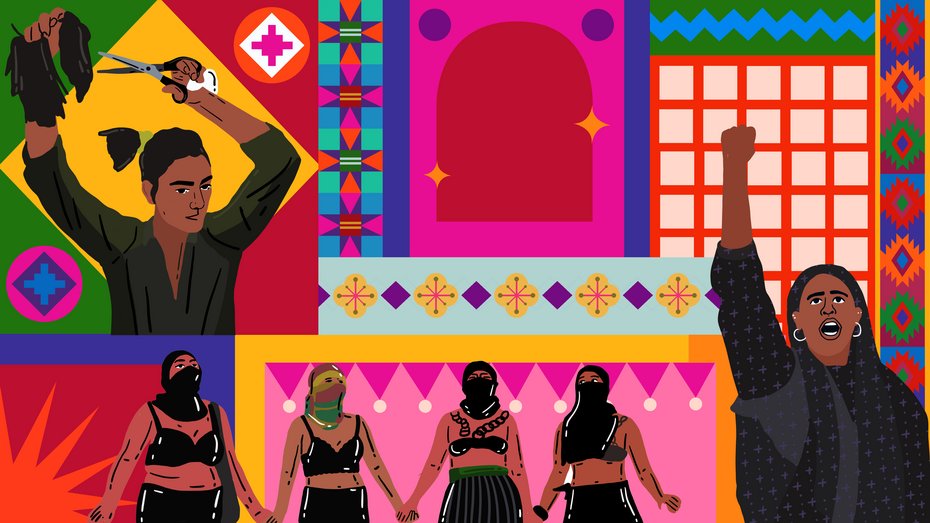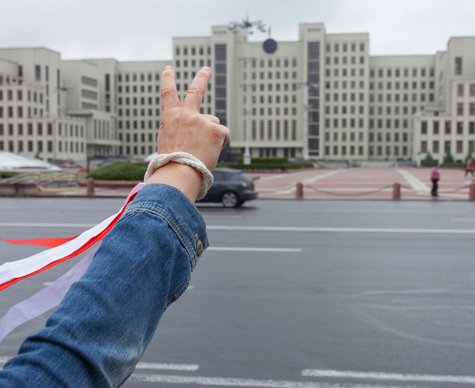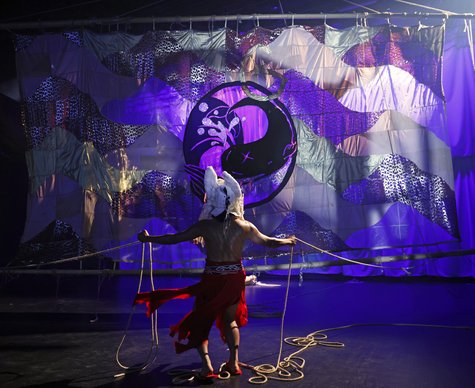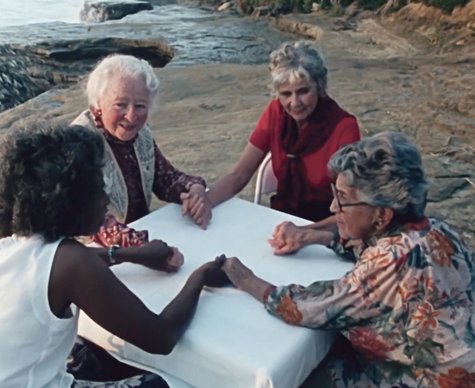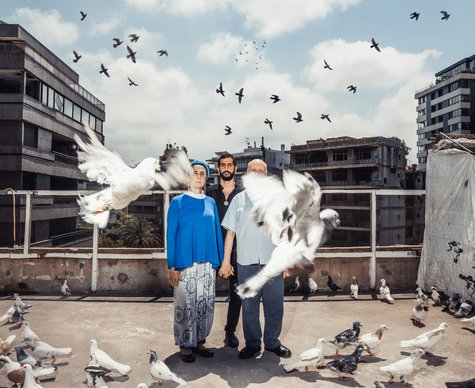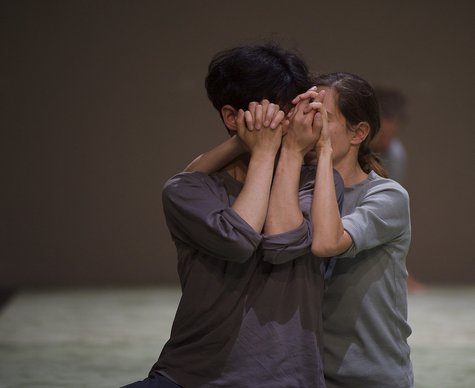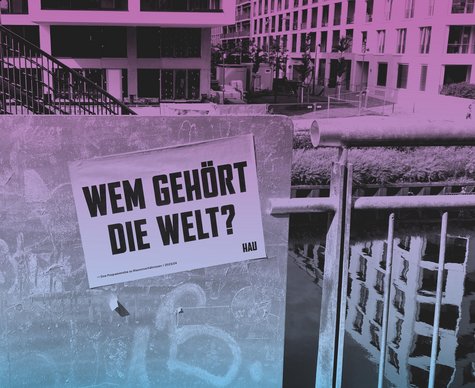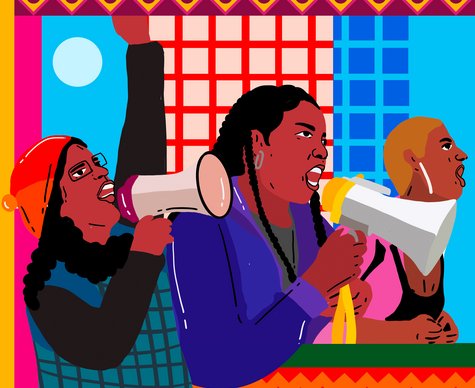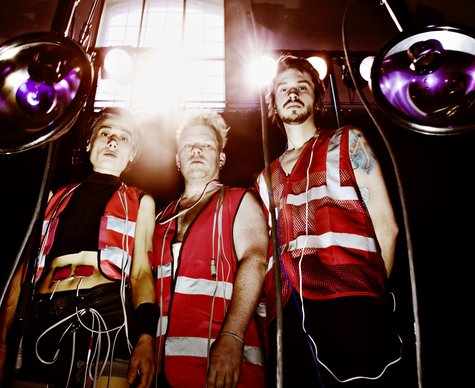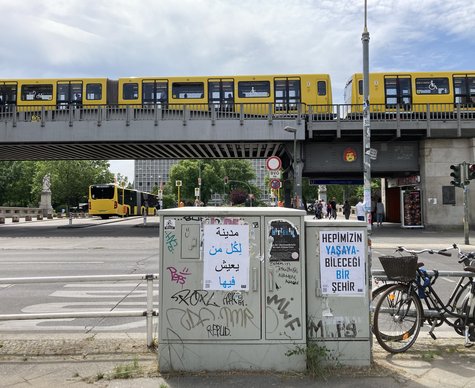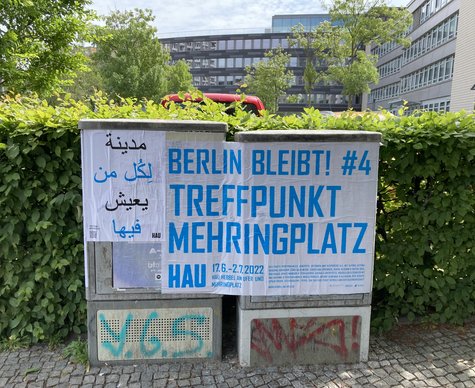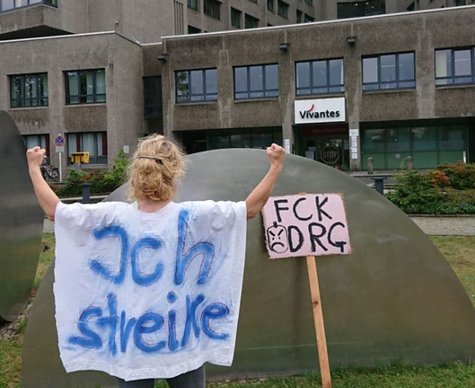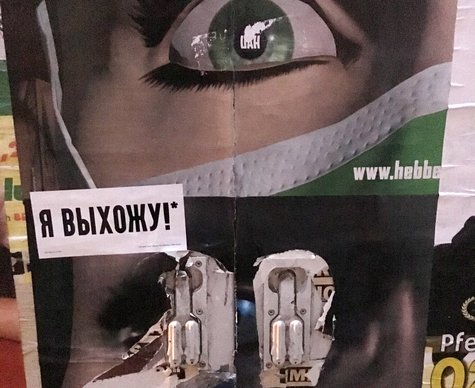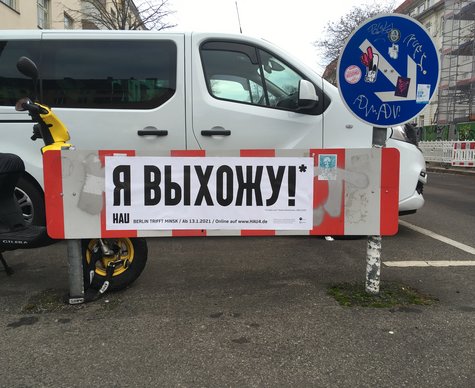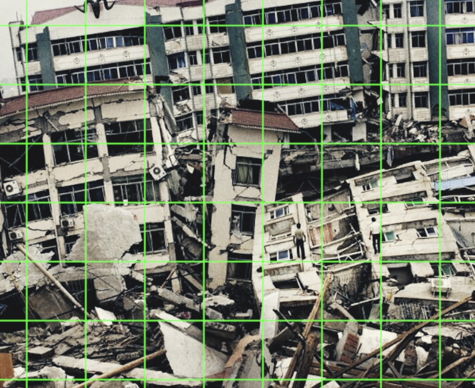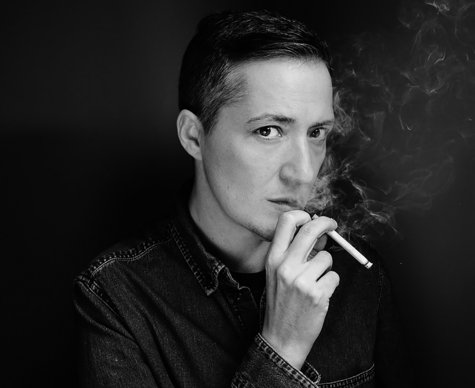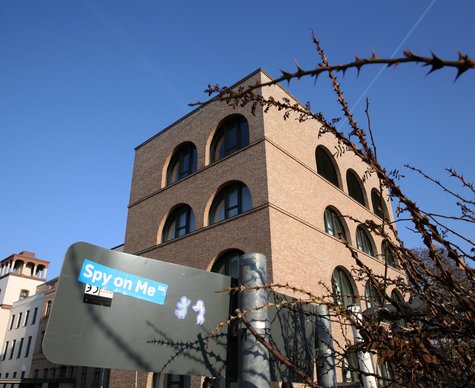Beyond Equality: Feminisms Reclaiming Life
An Internationalist Gathering – Tag 3
Hinweis: Alle Workshops sind ausgebucht. Eine Anmeldung ist leider nicht mehr möglich.
11:00–20:00
Im Rahmen von “¡PROTAGONISTAS! Resistance Feminisms Revolution”
Im Rahmen von “Beyond Equality: Feminisms Reclaiming Life. An Internationalist Gathering”
- Dialog
- Workshop
11:00–12:30 / HAU1
Round Table: “Breaking Barriers: On Queer and Gender Dissidence beyond borders”
Mit: Zethu Matebeni, Rub(en) Solís Mecalco, Maria Galindo
Moderation: Camila Nobrega
Sprachen: Spanisch und Englisch mit spanischer, englischer und deutscher Simultanübersetzung
In den meisten Teilen der Welt werden queere und Gender-Dissident*innen immer noch marginalisiert oder strafrechtlich verfolgt; gleichzeitig wird Queerness in Diversity-Mainstreaming-Politiken zum Trend. Das Panel konzentriert sich auf verschiedene Konzepte von Gender-Dissidenzen in unterschiedlichen transnationalen Kontexten – indigen, dekolonial und anderen – um die binären Konzepte von Gender und Sexualität, aber auch die Aneignungen neoliberaler Queer-Feminismen zu hinterfragen.
12:45–14:15 / HAU1 & HAU3
Workshops
Begrenzte Kapazität / Anmeldung erbeten über tickets@hebbel-am-ufer.de
Treffpunkt für alle Workshop-TeilnehmerInnen: HAU3 (Tempelhofer Ufer 10, 10963 Berlin)
Die Teilnahme an den Workshops ist kostenlos.
*The Political Economy of race and reproduction
Hosts: Bafta Sarbo, Bahar Oghalai
Mit: Miriam Nobre, Iida Käyhkö, Dalia Gebrial, Luci Cavallero, Encarnación Gutiérrez-Rodríguez
Sprachen: Englisch, Spanisch mit Simultanübersetzung
Feministische und antirassistische Bewegungen haben sich schon immer mit Fragen von Klassengesellschaft und Kapitalismus beschäftigt. In den letzten Jahren haben sich viele Konzepte popularisiert, die sich mit der Konzeptualisierung der Beziehung zwischen „Rasse“, Geschlecht und Klasse befassen. In diesem Workshop werden wir die Frage erörtern, wie die Systeme von Rassismus, Patriarchat und Kapitalismus zusammenhängen und wie soziale Bewegungen diese Verflechtung angehen.
*Feminism Unchained: Embracing Abolition and Challenging Carceral Feminism
Host: Elif Sarican
Mit: Becka Hudson, Nazan Üstündağ, Sabine Hark
Sprache: Englisch
Dieser Workshop wendet sich ab vom Paradigma des liberalen “Carceral-Feminism”, mit dem mehr Strafen gefordert werden, um geschlechtsspezifischer Gewalt zu begegnen. Die sexuelle Gewalt ist jedoch mit anderen Formen struktureller (staatlicher) Gewalt verbunden, wie z.B. Racial Profiling, Polizeigewalt, Grenzregime, Kriege oder wirtschaftliche Enteignung. Wie würde eine feministische abolitionistische Position aussehen? Wir werden das Potenzial eines abolitionistischen Feminismus für die Veränderung der Gesellschaft erkunden und die Zusammenhänge zwischen Geschlechterbefreiung und Kritik an Polizeigewalt und Militarismus untersuchen.
*Alternative Feminist Investigation Media Strategies
Host: Camila Nobrega
Mit: Barbara Marcel, Andrea Dip, JIN TV, Lara Bitar
Sprache: Englisch und Spanisch mit Simultanübersetzung
Traditionelle Mediensysteme sind Terrains, die in cis-heteropatriarchalen Welterzählungen verwurzelt sind. Feministische Kollektive und intersektionale Perspektiven schaffen jedoch neue autonome Formen des Geschichtenerzählens, des investigativen Journalismus und der Gemeinschaftsdokumentation. In diesem Workshop werden Menschen zu Wort kommen, die von ihren Projekten, Herausforderungen und Kämpfen berichten werden, um neue Bedeutungen des Journalismus in verschiedenen lokalen und grenzüberschreitenden Kontexten zu schaffen.
*Emotions in Movements
Host: medico International e.V.
Mit: Verónica Gago, Jule Govrin, Débora Medeiros
Sprache: Englisch
Welche Rolle spielen Affekte und Emotionen in der Massenmobilisierung? Unter welchen Bedingungen wird ihre Politisierung emanzipatorisch, und unter welchen Bedingungen sind sie autoritär? Massenproteste entzünden sich an affektiven Impulsen: Die gemeinsame Erfahrung von Gewalt und Unterdrückung wird zu einem zentralen Impulsgeber für emanzipatorische Bewegungen, wenn Leid und Angst in Wut umschlagen. Die sich organisierende Wut über strukturelle Gewalt findet zum einen immer wieder Ausdruck in queerfeministischen und dekolonialen Massenprotesten. Andererseits werden Emotionen unter Rechtspopulisten und Autoritaristen in Ressentiments und Hass gegen marginalisierte Gruppen umgewandelt. Dieser Workshop zielt darauf ab, die Rolle von Emotionen in der Massenmobilisierung aus einer feministisch-aktivistischen und sozialpsychologischen Perspektive zu verstehen.
*Feminized labor at the intersection of class, migration and the state of late hyper-capitalism
Host: Margarita Tsomou
Mit: Delal Atmaca, Liad Hussein Kantorowicz, Maternal Fantasies, Camille Barbagallo
Sprachen: Englisch, Deutsch
“Feminisierte Arbeit” wird systematisch unterbewertet, unterbezahlt und oft nicht einmal als Arbeit anerkannt: Dies gilt für alle Bereiche der gesellschaftlichen Reproduktionsarbeit, die den Feminisierten als ihre vermeintlich “natürliche Verpflichtung” zugewiesen wurde. Ausgehend von der (migrantischen) Hausarbeit, dem medizinischen Pflegesektor, der Sexarbeit und der Mütterarbeit werden wir die Bedingungen feminisierter Arbeit im gegenwärtigen Kapitalismus diskutieren und Ideen für eine Vergesellschaftung von Care-Arbeit entwickeln.
14:15–15:30
Pause
15:30–17:30 / HAU1
Round Table: “Neoliberalism & authoritarianism connected: Gendered Violence – how to fight back” (mitorganisiert von IRGAC-RLS)
Mit: Evren Savci, Luci Cavallero, Ewa Majewska, Eva von Redecker
Moderation: Firoozeh Farvardin
Sprachen: Brasilianisches Portugiesisch, Spanisch, Englisch mit deutscher Simultanübersetzung
Antifeministische Politik ist zum Eckpfeiler gegenwärtiger neoliberaler und autoritärer Regime auf der ganzen Welt geworden. Der Neoliberalismus geht, wenn auch in unterschiedlichen Ausprägungen, Hand in Hand mit dem Aufstieg autoritärer Herrschaft, rechtsextremer Bewegungen und religiösem Konservatismus, z. B. in der Türkei, Argentinien, Brasilien oder Polen. In diesen Kontexten hat die Verbindung von Neoliberalismus und Autoritarismus die geschlechtsspezifische Gewalt verschärft, z. B. als Anti-Abtreibungsgesetze, Anti-Trans-Politik, staatliche Femizide oder geschlechtsspezifische Verarmung. In der Debatte werden die Schlüsselstrategien der jeweiligen Kontexte für den Widerstand gegen verschiedene Formen der Ausbeutung unserer Körper und des Abbaus lebenswichtiger Ressourcen erörtert. Wie können wir trotz zunehmender neoliberaler Repressionen das Leben zurückgewinnen?
17:30 / HAU4, HAU1-Foyer
Vernetzt euch! Online-Talks
Sprachen: Spanisch, Brasilianisches Portugiesisch, Englisch
Perrxs del Futuro mit Pachaqueer
Teilnahme per Zoom und im HAU1-Foyer
Im Anschluss in der HAUthek verfügbar
Im Online-Raum verbinden sich internationale Netzwerke, Organisationen und Bewegungen über physische Barrieren hinweg und überwinden sie. Mit ihren Forderungen erreichen queer-feministische Akteur*innen auf sozialen Plattformen eine große Öffentlichkeit und es bilden sich neue Allianzen. Für diesen Anlass wird das HAU4 wird zum Online-Begegnungsort, der über räumliche und geografische Grenzen hinaus verbindet. Unter dem Titel “Vernetzt euch!” finden Online-Talks mit multi-perspektivischen Bewegungen statt. Dabei wird zu gemeinsamen Aktionen aufgerufen oder Möglichkeiten der gemeinsamen Unterstützung werden aufgezeigt.
18:00-20:00 / HAU1
Round Table: Feminismus und die Neue Rechte: Resisting “divide and rule” – Antirassimus und Feminismus Kontinuitäten der migrantischen Kämpfe (in Europe?)
Mit: Simone Dede Ayivi, Encarnación Gutiérrez-Rodríguez, Sabine Hark, Jamille da Silva
Moderation: Bafta Sarbo
Sprachen: Englisch und Deutsch mit englischer, spanischer und deutscher Simultanübersetzung
Die Anti-Migrations-Rhetorik, die durch einen neu-aufflammenden Nationalismus angeheizt wird, ist ein zentrales Thema der neuen Rechten in Deutschland. In den letzten zehn Jahren haben rechte Bewegungen die Sorge um die Sicherheit von Frauen* als Hauptargument gegen Migration angeführt. Diese Bewegungen wurden direkt oder indirekt von einem konservativen Zweig des Feminismus unterstützt, der Männer mit Migrationshintergrund als Bedrohung für deutsche Frauen und Migrantinnen betrachtet. Wie können feministische und antirassistische Bewegungen diese Spaltung und Vereinnahmung bekämpfen?
Termine
Tickets für die einzelnen Panels sind für jeweils 5 € ausschließlich an der Abendkasse erhältlich. Tages- sowie Kombi-Tickets für alle drei Tage sind auch im Vorverkauf online erhältlich.
Informationen zu den Workshops: Begrenzte Kapazitäten, Anmeldung erbeten über tickets@hebbel-am-ufer.de / Treffpunkt für alle Workshop-Teilnehmer*innen: HAU3 (Tempelhofer Ufer 10, 10963 Berlin). Die Teilnahme an den Workshops ist kostenlos.
Es wird eine Kinderbetreuung angeboten. Bitte kontaktieren Sie uns über anmeldung@hebbel-am-ufer.de zur Anmeldung.
Während des Gatherings ist ein Awareness-Team vor Ort, das jederzeit aufgesucht werden kann.
Kurzbiografien aller Beteiligter finden Sie hier.
Credits
Gefördert durch: Allianz Foundation. In Kooperation mit: Rosa-Luxemburg-Stiftung, medico international e.V.
Spielorte
HAU1
Stresemannstraße 29, 10963 BerlinZwei markierte Parkplätze vor dem Haus vorhanden. Zugang zum Parkett über separaten Eingang mit Lift möglich. Barrierefreie Sanitäranlagen vorhanden.
HAU3
Tempelhofer Ufer 10, 10963 BerlinDas HAU3 ist leider nicht barrierefrei. Das Theater ist über das Treppenhaus erreichbar (3. Stock). Damit wir unter diesen Gegebenheiten optimalen Service bieten können, wenden Sie sich bitte an unser Ticketing- & Service-Team unter +49 (0)30 259004-27 oder per Email an tickets@hebbel-am-ufer.de.
